Quality UTME Lessons for Art Students
Individual and group classes • Student-friendly rates
📞 Contact Ayomiposi on WhatsApp now
What We Know about the Poet
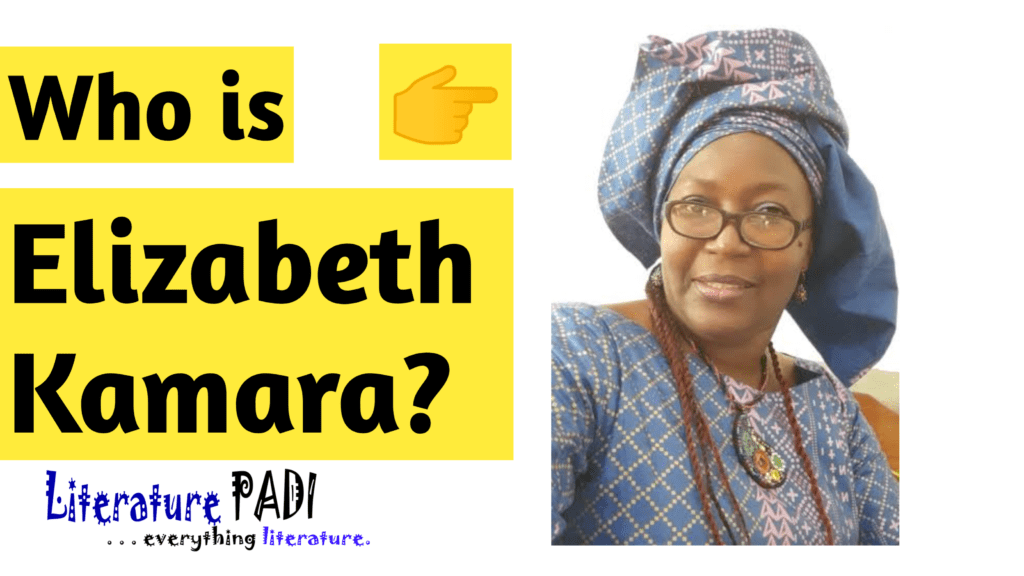
Elizabeth Lucy Alberta Kamara is a Sierra Leonean educator, writer, and poet. She was raised in the east end of Freetown. She received her early education at Kamara Holy Trinity Primary School and Annie Walsh Memorial School before pursuing her academic journey at Fourah Bay College. Currently, she holds the esteemed position of Literature in English lecturer within the Department of Language Studies at the college and has ascended to the role of Head of the English Unit.
As a writer, Elizabeth Kamara has three poetry collections to her credit. They are “Distilled,” “To Cross for a Daughter,” and “Stolen Laughter.” Her third poetry collection, “Stolen Laughter,” navigates through the realms of injustice, from the harrowing experiences of abused children to the streets of Minneapolis, where the plight of individuals like George Floyd is starkly depicted. Some of her works have been translated into Spanish and Greek. “New Tongue” is one of the numerous poems in her “To Cross for a Daughter and other Poems.”
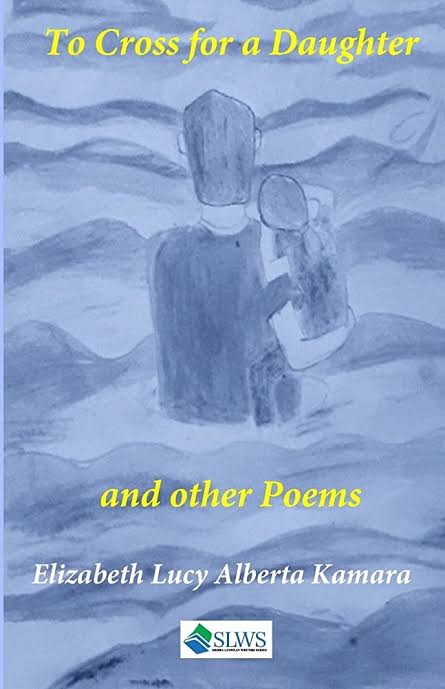
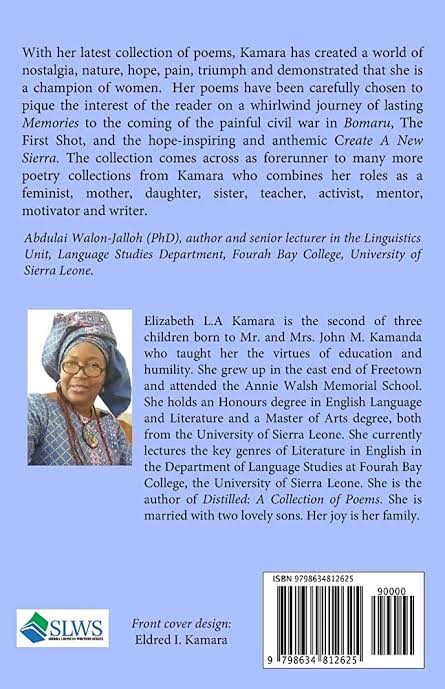
Elizabeth Kamara’s influence extends beyond her written works, as she has contributed to various national and international publications, which include African Literature Today and In the Belly of the Lion.
Kamara is the founder and coordinator of the Poetry Reading Club at Fourah Bay College. She is an active member of prestigious associations like the African Literature Association, the Sierra Leone Writers Guild, the World Poetry Movement, and the Conservation Society of Sierra Leone. Her dedication and excellence in academia were recently recognised when she was honoured as the Lecturer of the Year for the 2021/22 academic year at Fourah Bay College.
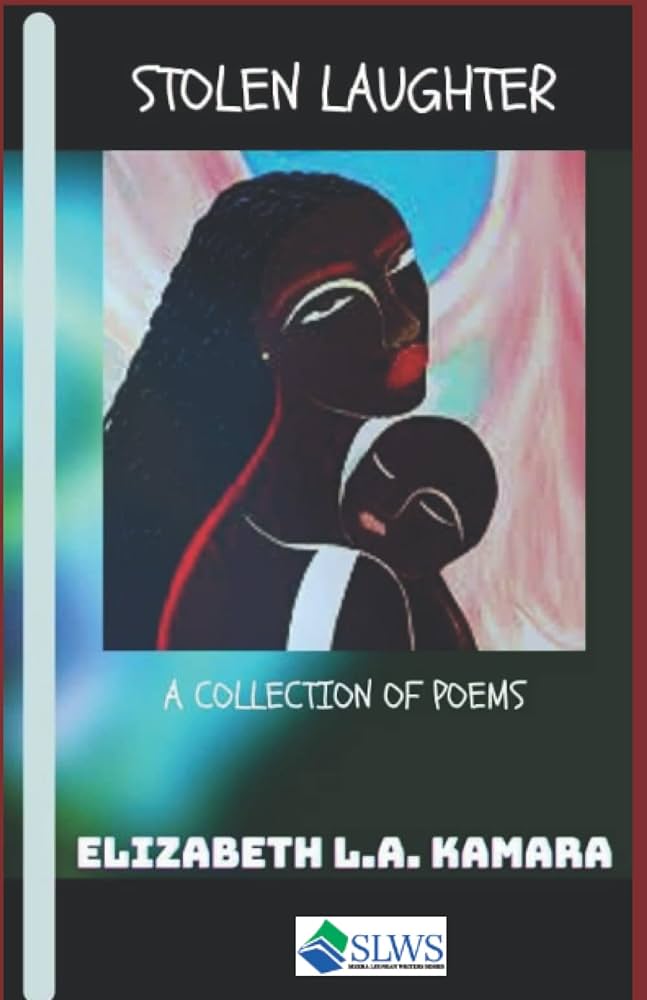
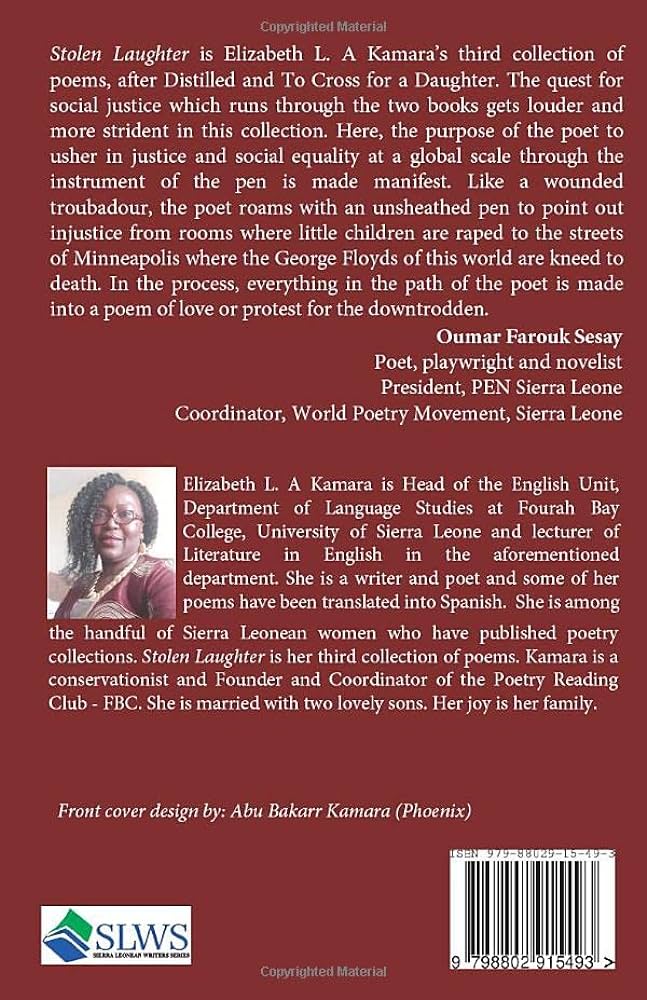
Analysis of “New Tongue”
“New Tongue” by Elizabeth L. A. Kamara is a forty-six-line poem that laments the neglect of African culture and tradition in the embrace of conveniently woke foreign values. The poem mourns the total detachment from tradition by a young generation of Africans as they adopt “borrowed” practices and confine the ashes of their own cultural practices “into the bottomless sea.”
For proper context, it is imperative for us to begin our examination with the title of the poem. “New tongue,” as used in the context of the poem, is a metonymy for a new language.
For centuries, Africans had maintained interactions with people of different shades from Europe and Asia. These uneven relations spanned the period of slavery, when both her human and economic resources were carted away; the period of colonialism, when artificial borders were created across Africa by Europeans who had no business governing Africa; to the period of neo-colonialism, when the direction Africa takes is heavily dependent on where Europe moves. All through these three phases of interactions, Europeans and Arabians left their indelible marks in terms of their cultural legacy, religions, and languages. These imprints have led to cultural disruptions that still influence the continent today.
For one, the linguistic identities of most African countries have shifted to those of their colonial masters. In anglophone countries like Nigeria, Ghana, and Sierra Leone, the official language is English. In francophone countries like Senegal, Ivory Coast, and the Democratic Republic of the Congo, French is the official language. And in lusophone countries, like Angola, Mozambique, and Guinea-Bissau, the official language is the Portuguese language. In each instance, the official language is the language of administration, education, law, commerce, media, and literature.
As we shall find out later in our interpretation of the poem, “New Tongue” is not essentially about language change but about the cultural shift it brings with it. We try so hard to be like the Europeans in mannerisms, dressings, and ideologies. To paraphrase Sidi’s descriptions of Lakunle in Wole Soyinka’s The Lion and the Jewel, “We are dressed like them. We look like them. We speak their tongue. We think like them. We’re just as clumsy in our foreign ways–we’ll do for them!” As a result, there is transposition of European realities over the African value system. This cultural switch is the overriding message in Elizabeth L. A. Kamara’s “New Tongue.”
The language used in the poem emphasises the disregard for old ways, the breaking away of ties in family and friendship, and the nonchalance towards the loss of heritage. The imagery of “ashes strewn into the bottomless sea/as fishes swim by/careless of the loss” points to the indifference of the new generation of Africans to their past.
Related:
- Poem: “New Tongue” by Elizabeth L. A. Kamara
- Themes in Elizabeth L. A. Kamara’s “New Tongue”
- 2026—2030 Recommended Literature Texts For WAEC and NECO SSCE
This group of Africans has deliberately distanced themselves from their traditions. They have rejected the place of elders in society. They have also blocked their ears to the old ways. They instead celebrate a borrowed culture and enjoy the status of being wannabes of another man’s culture. They preach individualism in place of collectivism, which, of course, defines many African communities. They “hang the last lock on their culture” in order not to be tagged uncivilised and backward.
“New Tongue” undeniably calls our attention to how we have superimposed Western (or, to be less specific, non-African) values over our own values and how we have come to identify with values that consequently place ours in the backwaters of history.
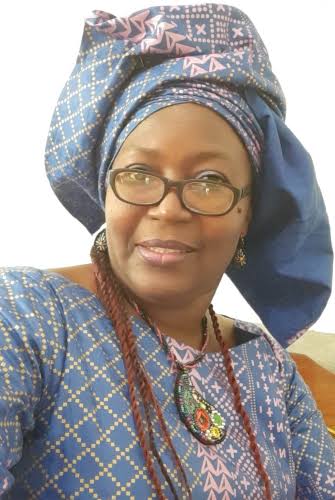
Stanza by Stanza Analysis
Structurally, “New Tongue” is a free verse poem with five uneven stanzas. Stanza one has thirteen lines; stanza two has eleven lines; stanza three has five lines; stanza four has twelve lines; and stanza five is made up of five lines.
Stanza One
The opening stanza introduces us to the adoption of a new language and culture. The third-person plural pronoun “they” used in this stanza refers to a new generation of Africans. There is a cultural shift in this generation. This assertion is corroborated by the repetition of the word “new” four times in this stanza: “speak in new tongue,” “dance new dances,” “battered into new modes and shapes,” and “revel in the wonder of the new.” This suggests a total assimilation into a new culture: “Minds battered into new modes and shapes.”
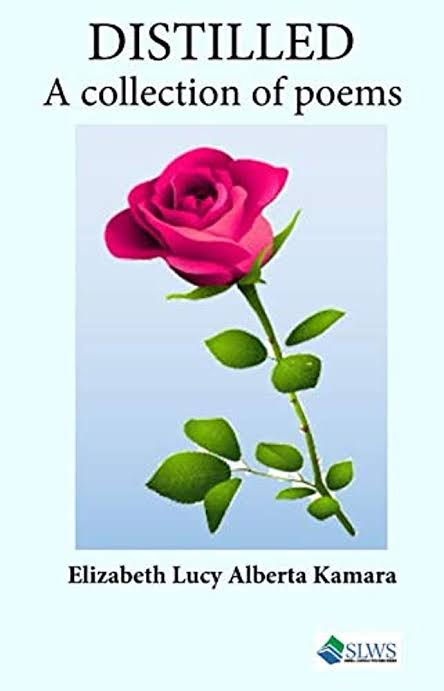
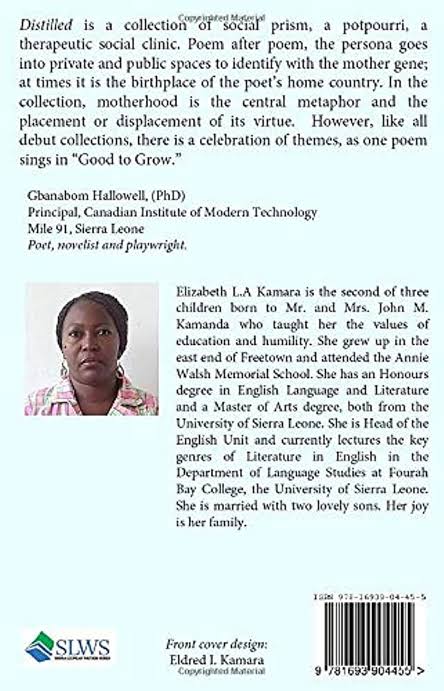
As evident in the lines in this stanza, these Africans are deeply fascinated by the adopted culture: “their eyes revel in the wonder of the new.” But at what price does this strong attachment to the new culture come? The breaking of familial and friendship ties. This is symbolised by the metaphorical burning and scattering of ashes in the sea. They dismiss their African heritage, otherwise called “old songs,” as “disregarded dreams,” “remnants of a past” they don’t want to identify with.
In other words, the younger generation embraces the novelty of a foreign culture and language with unwavering commitment while it disregards, discards, and forgets the traditions of the older generation. Consequently, ties of family and friendship weaken and break.
Premium PDF
There are 1,111 words left in this article and a total of 3,637 words in our premium PDF. Download the entire New Tongue study guide as a printable PDF now!
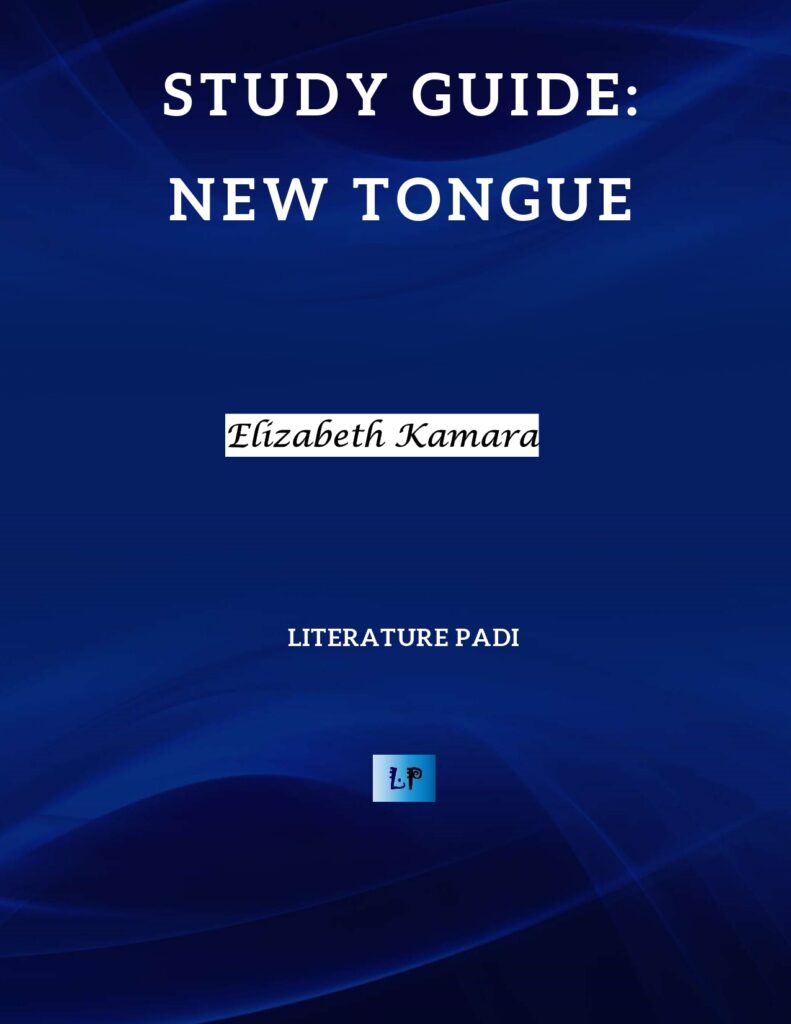
Receive Literary Updates through our Social Media Channels:
- WhatsApp: Literature PADI
- Telegram: Literature PADI
- YouTube: @literaturepadi
- Facebook: Literature PADI
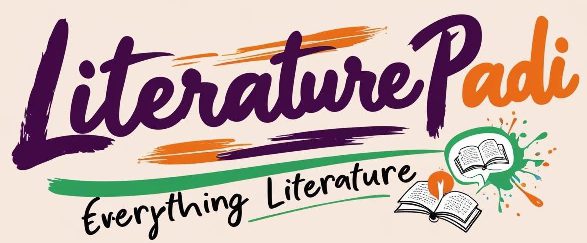
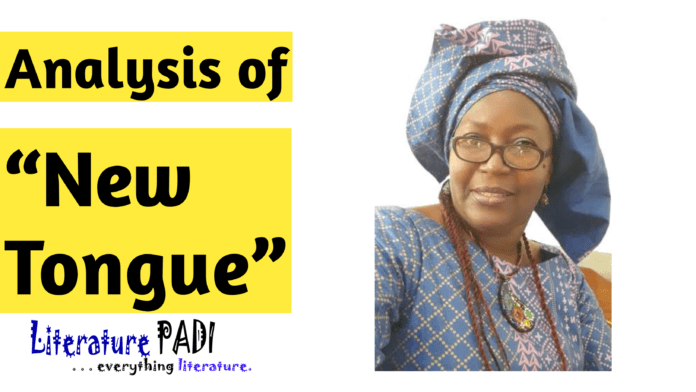
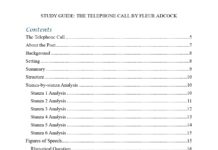

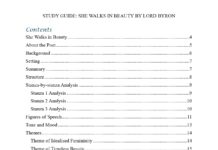

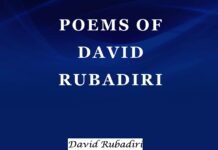
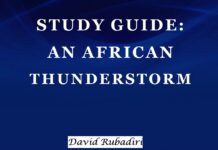
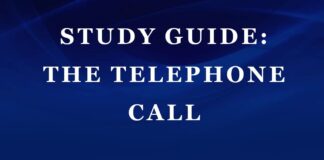
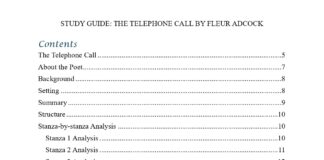
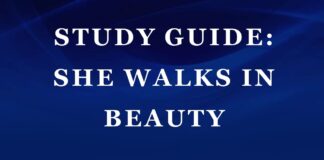
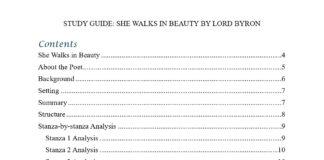
I love your poems
Comment: this book has a delightful message to this young generation about the adoption of foreign language and styles while they neglect their own culture
Dedicated lecture firm but a motherly role lives. She is Will makes you learn indeed she is a mother.
One of the best poems I have ever read. She serves as both an educator and a mother in this poem. Having gone through this poem, rivers run down my cheek, and I have no idea when will it stop.
Wow. This is an emotive assessment of Elizabeth Kamara’s “New Tongue”. The poem is worth its salt, no doubt about that.
One of my best poems.